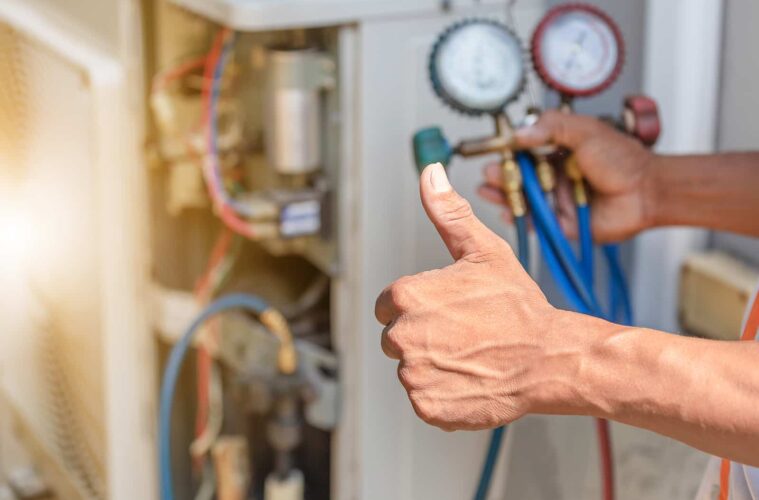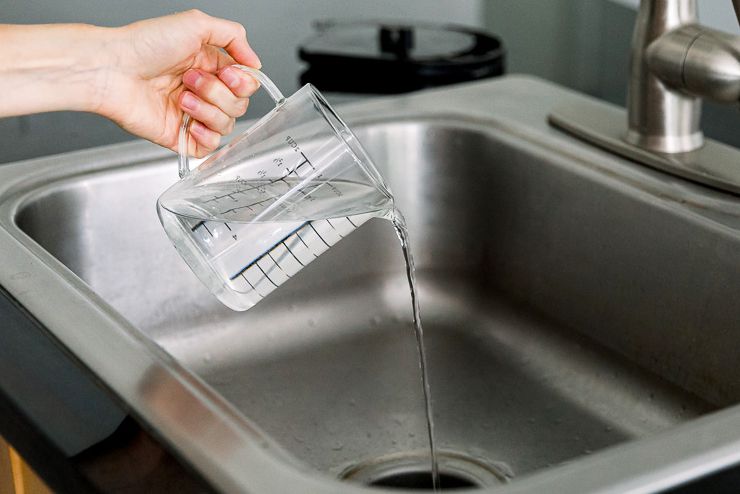Furnace maintenance is a crucial aspect of homeownership, often overlooked until issues arise. Regular maintenance ensures the furnace’s efficient operation and extends its lifespan, saving homeowners from unexpected breakdowns and costly repairs. A well-maintained furnace also contributes to the safety of a home by reducing the risks associated with gas leaks or fire hazards.
Regular check-ups and maintenance help identify and rectify any inefficiencies, ensuring the furnace operates at its optimal capacity. This article provides homeowners with a detailed furnace maintenance checklist, covering essential tasks like visual inspections, filter replacements, and professional check-ups to ensure efficient and safe furnace operation.
Conduct Visual Inspections
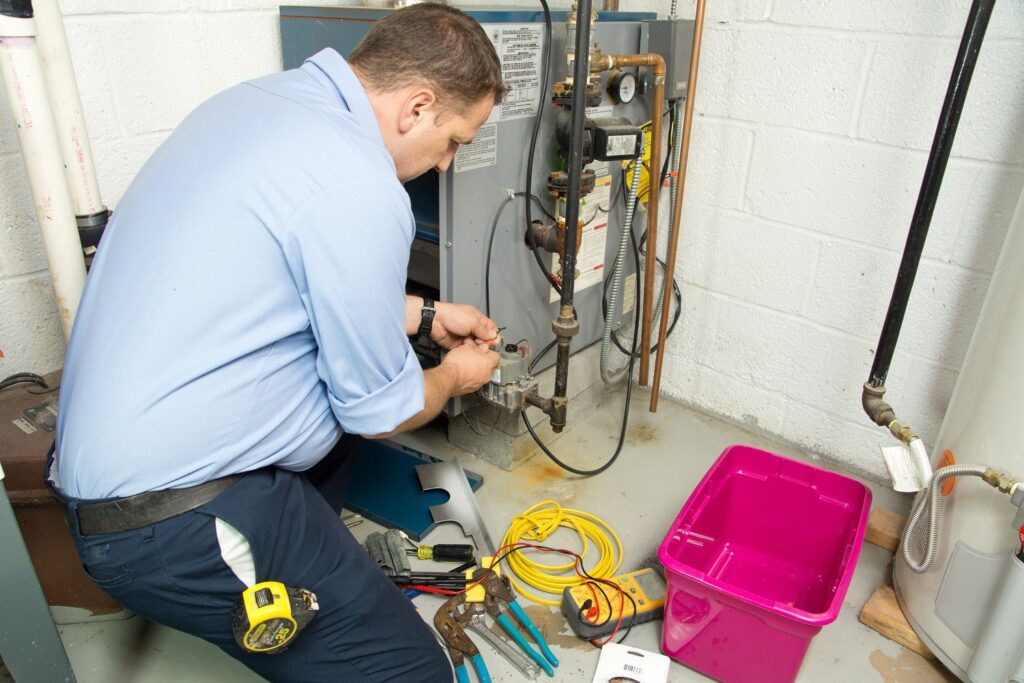
source: pinterest.com
The visual inspection is the first and fundamental step in furnace maintenance. It involves carefully examining the furnace’s exterior for any signs of wear or damage.
Homeowners should look for rust, cracks, or dents on the furnace, which can indicate more serious internal issues. Additionally, the area surrounding the furnace must be clear of flammable materials or any obstructions that could restrict airflow or pose a safety hazard.
When inspecting the interior, attention should be focused on the blower motor, belts, and bearings, checking for signs of wear. Unusual noises during operation, such as grinding or squealing, are often tell-tale signs of problems in these areas.
It is also important to ensure that the vents and air filters are free from debris and dust, as accumulation in these areas can significantly impact the furnace’s efficiency.
Replace The Filter Regularly
Regularly changing the furnace filter is crucial for maintaining air quality and furnace efficiency. A clogged filter restricts airflow, compelling the furnace to exert more effort and consume more energy, leading to increased wear and tear and potentially shortening the furnace’s lifespan. It is recommended to check the furnace filter every month and replace it at least every three months.
When selecting a new filter, homeowners should consider the Minimum Efficiency Reporting Value (MERV) rating that is compatible with their furnace model and aligns with the air quality needs of their home. Higher MERV ratings are capable of trapping finer particles, making them a beneficial choice for households with allergies or pets.
Check The Pilot Light And Burner
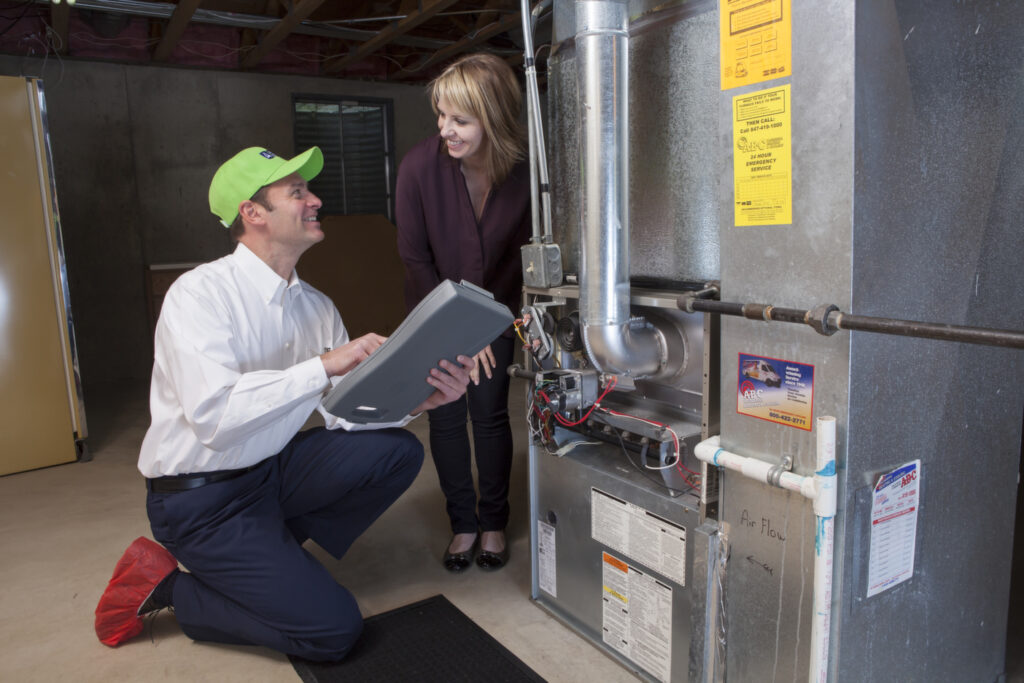
source: pinterest.com
In gas furnaces, the pilot light and burner are critical components that require regular checks. The pilot light should display a steady blue flame; a yellow or flickering flame might indicate a problem, such as a dirty burner or an issue with the gas mixture.
The burner should be inspected for proper ignition and an even flame pattern. An uneven flame or a delay in ignition could suggest that the burner needs to be cleaned or adjusted. Due to the complexities and safety considerations involved, these tasks are best handled by a professional furnace repair company.
Calibrate The Thermostat
Correctly calibrating the thermostat is a key aspect of ensuring efficient furnace operation. A thermostat that is not properly calibrated can cause the furnace to run longer than necessary, leading to increased wear and tear.
To test the thermostat’s accuracy, homeowners can compare its reading with a reliable thermometer. Recalibrating the thermostat or considering its replacement may be necessary if there is a discrepancy.
Modern programmable or smart thermostats offer more precise control, enabling homeowners to set energy-saving temperature schedules and make adjustments remotely, which can be advantageous for both efficiency and convenience.
Inspect The Heat Exchanger
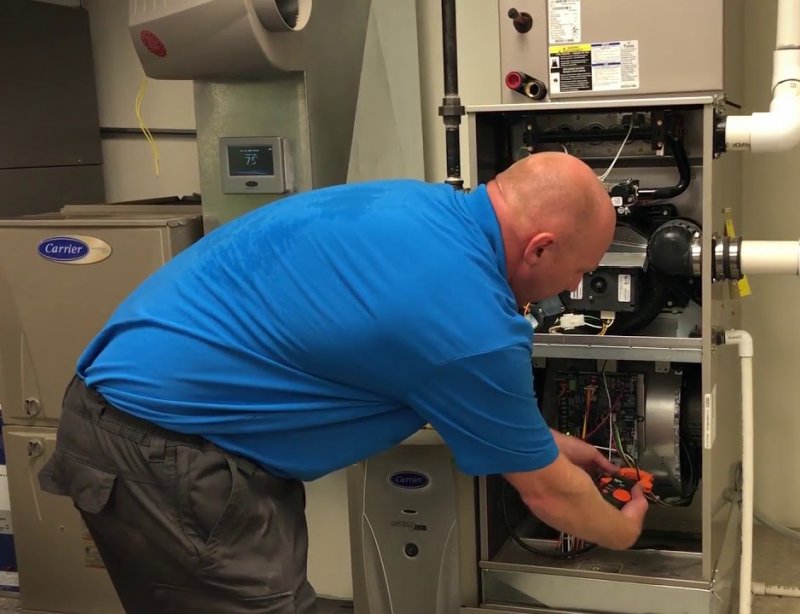
source: pinterest.com
The heat exchanger, a vital component of the furnace, separates the combustion gases from the breathable air in the home. It should be inspected annually for any cracks or signs of corrosion. These defects can lead to dangerous carbon monoxide leaks.
Conducting this inspection ideally before the start of the heating season is recommended. If any damage is detected, it is crucial to address it immediately, as a cracked heat exchanger poses a serious safety risk and requires professional intervention for repair or replacement.
Clean And Inspect The Ductwork
The ductwork in a heating system plays an integral role in distributing warm air throughout a home. Inspecting the ducts regularly for any signs of leaks, holes, or disconnected segments is essential. These defects can cause uneven heating and reduced efficiency, as heated air may escape before reaching its intended destination.
Sealing any detected leaks is vital in maintaining the system’s efficiency and ensuring even heating throughout the home. Beyond this, homeowners should consider having the ducts professionally cleaned every few years.
Over time, ducts can accumulate dust, pet dander, and other debris, which can obstruct airflow and degrade the overall air quality within the home. Professional cleaning helps remove this buildup, improving airflow and air quality.
Lubricate Moving Parts
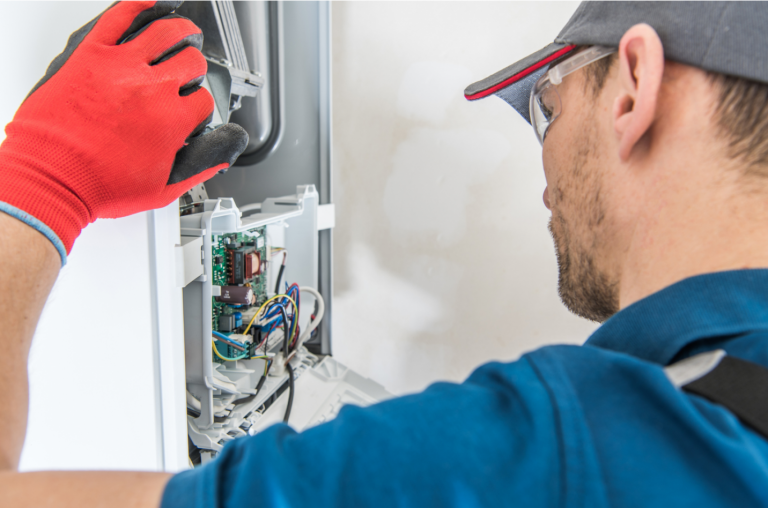
source: pinterest.com
Furnaces are composed of several moving parts, including fans and motors, which require regular lubrication to operate smoothly. Without proper lubrication, these parts can suffer increased wear and tear, potentially leading to premature breakdowns and reduced efficiency.
It’s important to use the appropriate type of lubricant as specified in the furnace’s manual to maintain these components. This task, typically done during routine maintenance checks, is straightforward but plays a crucial role in the overall health of the furnace.
Test Safety Controls And Switches
Safety controls and switches in a furnace are essential for safe operation. These components should be tested regularly to ensure they are functioning correctly.
This testing helps in averting potential hazards, such as fires or other malfunctions. If any safety control or switch fails during testing, it’s imperative to have it repaired or replaced immediately to maintain the safety of the furnace.
Given the complexity and importance of these components, consulting with a professional for testing and repair is advisable, especially if homeowners are unsure about the process.
Check The Condensate Drain
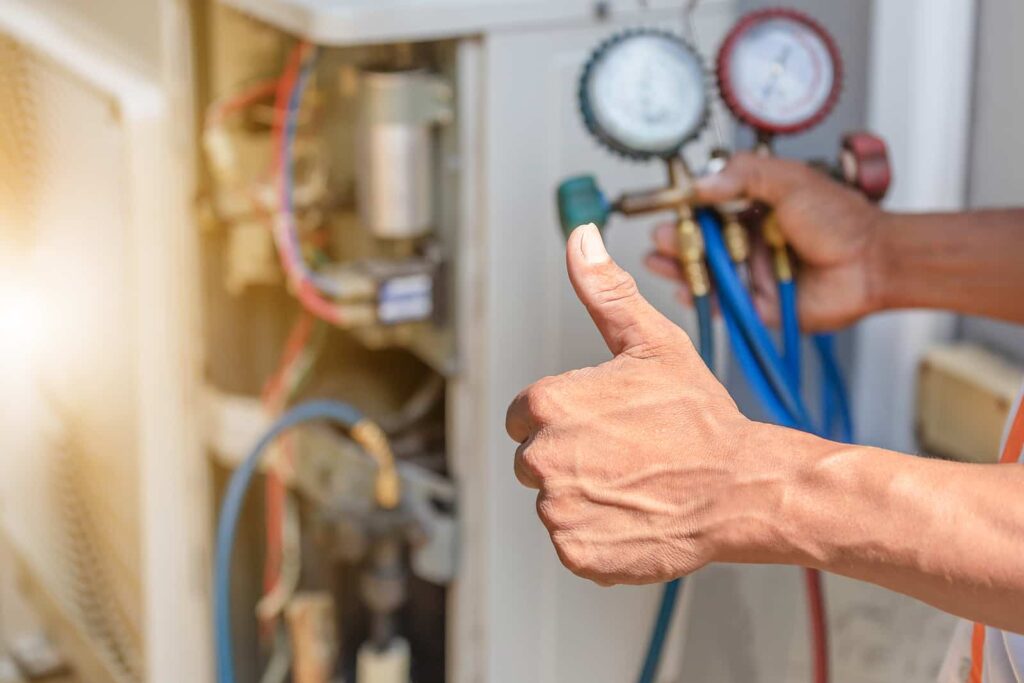
source: pinterest.com
In high-efficiency furnaces, the condensate drain plays a critical role by removing the water produced during the heating process. It’s important to ensure that this drain is clear and free from any debris, as a clogged drain can lead to water damage and negatively affect the furnace’s performance.
Homeowners should regularly clean the drain and the surrounding area to prevent blockages. If signs of significant buildup occur, professional cleaning might be necessary to ensure that the condensate drain functions effectively.
Schedule Professional Maintenance
While homeowners can perform many furnace maintenance tasks, certain aspects require the expertise of a professional. Scheduling annual maintenance with a certified technician is crucial for a comprehensive examination and tuning of the furnace. Technicians can identify and address potential issues that may not be immediately obvious to an untrained eye.
Professional maintenance is key to keeping the furnace running at peak efficiency, which can reduce energy costs and extend the unit’s lifespan. This step is vital in ensuring the overall health and safety of a home’s heating system, providing homeowners peace of mind and stability.
Conclusion
Regular furnace maintenance is essential for efficient operation, safety, and longevity of the heating system. By following this comprehensive checklist, homeowners can ensure their furnace runs smoothly, prevent unexpected breakdowns, and maintain a comfortable and safe home environment.
Remember, while many tasks can be performed independently, the expertise of a professional is invaluable for certain aspects of furnace maintenance, ensuring peace of mind and optimal performance.

